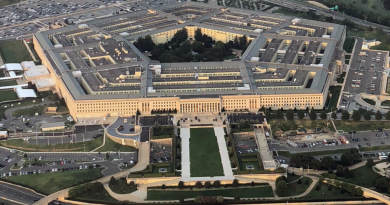Finland Becomes 31st Nation to Join NATO
Catherine Anderson
Staff Writer
Finland became the 31st member-state of NATO on April 4, which more than doubles the alliance’s border with Russia, according to Axios. In an interview with Foreign Policy, Matthew Kroenig, a political science professor at Georgetown University, argues that Finland’s membership in NATO marks the largest boost to NATO capacity since West Germany joined in 1955. This addition, which added 1300 kilometers, or 830 miles to the alliance’s border with Russia, marks a significant blow to Russia, writes CNN. Russian President Vladimir Putin has previously attempted to undermine NATO and prior to his invasion of Ukraine, CNN continues, he demanded that it refrain from further expansion.
Finland’s membership demonstrates that Putin has been unable to deter NATO expansion, and a further blow could come soon in the addition of Sweden. The two nations applied jointly, writes the Associated Press, and planned to enter the alliance together. Sweden’s application, however, is currently being held up by Türkiye, whose President has stated that his country will not approve Sweden’s admission until certain disputes between the two countries are resolved, continues the Associated Press. Hungary also has not approved Sweden’s admission, though it is not clear when that will happen, according to the Associated Press. Unanimous approval is required for a nation to join NATO, so Sweden will not be a member until Türkiye and Hungary approve its application.
Both Finland and Sweden could be important assets for NATO, due in part to the strategic benefit of their geographical locations. According to Foreign Policy, once Sweden joins, the Baltic Sea will be controlled by NATO members, making it much easier for the alliance to defend the Baltic states in case of a Russian attack. While most experts consider the addition of Finland a win in terms of security in Europe, there are concerns that the expansion could also cause problems for NATO. As Kroenig points out in Foreign Policy, NATO is now responsible for defending the new border with Russia, which has now more than doubled in length. He continues, however, that this may not be a huge issue, as Finland has proven itself capable of doing so itself. Russia also made statements insinuating that the nations’ admission to NATO is actually harmful to the security of Europe. According to CNN, the Kremlin stated that if NATO sends any troops or equipment to Finland, it would increase its own forces in the area.
In addition to these potential threats, the domestic implications of joining NATO within Finland are complex. Finland recently had an election in which Prime Minister Sanna Marin, a member of the left-leaning Social Democrat party, lost her chance at a second term. Instead, the National Coalition Party, which the Wall Street Journal describes as center-right, led by likely Prime Minister Petteri Orpo, won the majority of the votes. This change marks a shift to the right amongst Finnish voters, which is indicative of a larger trend in Europe. As NBC News writes, Marin was popular in Finland because of her handling of COVID-19 and her support of Ukraine following Russia’s invasion. According to CNN, the invasion was a big part of why popular support in Finland and Sweden shifted in favor of joining NATO. Marin was voted out primarily for economic reasons, especially concerning the national debt.
While Finland is set to join NATO under a more conservative government, the move will require Helsinki to increase defense spending, which may not ease concerns about the national debt, the Wall Street Journal reports. Regardless, the shift towards the conservative party is not unique to Finland. As NBC News states, Sweden recently went through a similar shift, which was followed by Italy electing its most conservative government since World War II. Spain’s current left-leaning government, is also under immense pressure, and its more right-leaning parties are favored in the upcoming December elections, NBC News furthers.
As the Wall Street Journal reports, the elections in Finland reflect the recent spike in nationalism across Europe. Its decision to join NATO also reflects Europe’s desire to unify against Russia’s invasion of Ukraine. Both of these are indicative of a major shift in the political landscape in Europe and could have massive implications as these situations continue to develop.


